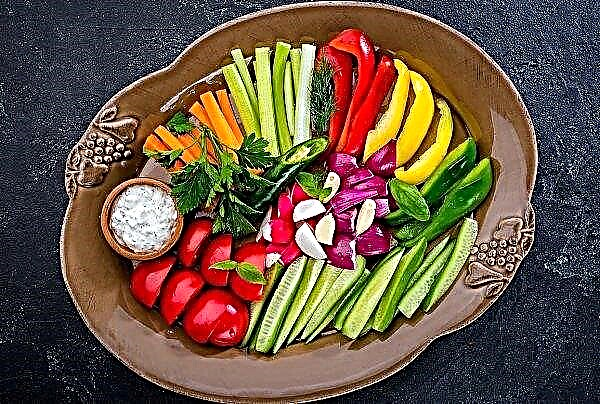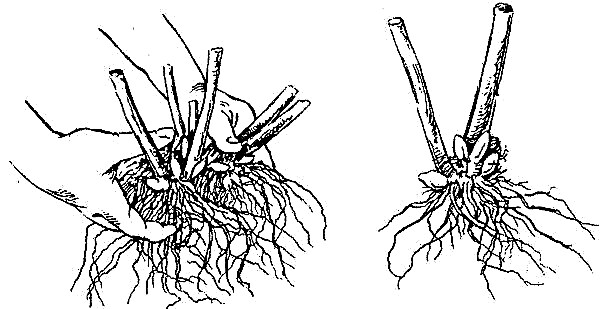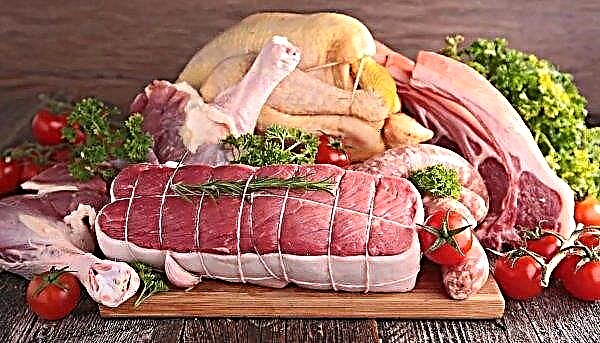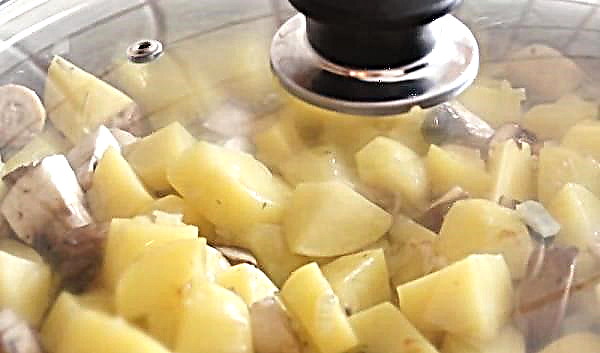Pregnancy is a unique period in the life of every woman, which is accompanied by a host of dietary restrictions. Is carrots useful for pregnant women, and what are the benefits and contraindications for eating this vegetable every day, read below.
Did you know? In Britain in the 17th century, women often decorated the fields of their hats not only with flowers, but also with carrot leaves. They looked fresh for a long time and smelled nice.
Chemical and vitamin composition of carrots
The chemical composition of the vegetable per 100 grams:
- proteins - 0.9 g;
- fats - 0.2 g;
- carbohydrates - 6.8 g;
- water - 88.29 g;
- dietary fiber - 2.8 g.
The calorie content of the raw product is 32 kcal per 100 grams.
Vitamin Composition:
- retinol acetate (A1);
- thiamine (B1);
- riboflavin (B2);
- nicotinic acid (B3);
- pyridoxine (B6);
- folacin (B9);
- ascorbic acid (C);
- tocopherol (E).
Important! In the first trimester of pregnancy, an additional supply of folic acid is needed, which is involved in the formation of the fetal tube, so a woman is shown daily consumption of raw carrots in the amount of 100 grams.
Mineral composition:
- copper;
- boron;
- zinc;
- potassium;
- calcium;
- phosphorus.
Is it possible to eat carrots during pregnancy?
The benefits of carrots have been known to everyone since childhood. Due to its rich vitamin and mineral composition, the vegetable is useful for women during pregnancy, when the body urgently requires additional vitamins.
First trimester
The first trimester of pregnancy for a woman lasts from the 1st week to the 13th. During this period, it is important to stock up on vitamins, which will strengthen the body, exhausted by pregnancy, until the birth. Thanks to the B and C vitamins included in the composition, the raw carrot eaten increases the body's resistance to stress and viral diseases. The use of vegetables in the first trimester of pregnancy should not exceed 200 grams per day.
- Despite the mass of useful properties, when using a vegetable in the first trimester, there are contraindications:
- if there is a threat of pregnancy failure, it is not recommended to use carrot fruit drinks, due to the high concentration of carotene, which causes a load on the liver and stomach;
- excessive consumption of vegetables in the first trimester can lead to abnormal development of the fetus due to an excess of vitamin A.
Mid pregnancy
The second trimester starts from the 13th week and lasts until the 28th. During this period, it is important for a woman to eat foods containing potassium and calcium in order to maintain the heart muscle and strengthen bones. The fetus develops and grows, drawing vitamins and minerals from the female body, which leads to brittleness and hair loss, foliation of the nail plates.
Did you know? Carrot tops are also edible and are successfully used in the preparation of soups and salads.
- Useful properties of the vegetable in the second trimester:
- Vitamin E improves skin elasticity and strengthens hair follicles.
- Potassium, which is part of the vegetable, helps to improve the working capacity of the heart muscle.
- Calcium strengthens the skeleton and nail plates.
- Vitamin A is involved in the formation of the internal organs of the baby in the womb.
Fresh carrots in the second trimester are consumed up to 300 grams per day. Also, carrot juice should not be abused, because tooth enamel is destroyed due to the high iron content.
Late date
The third trimester begins from the 28th week and continues until the birth. During this period, the female body is greatly modified. Weight gain interferes with normal movement, and an enlarged child puts pressure on internal organs, which causes the woman discomfort and leads to frequent constipation.
- The use of vegetables in the third trimester:
- Thanks to fiber, carrots can have a laxative effect and relieve a woman of constipation.
- The vegetable is rich in vitamin K, which improves blood coagulation, which will help with the upcoming birth, saving the woman in labor from heavy blood loss.
- Riboflavin in the composition of the vegetable helps to create a sheath of nerve fibers in the body of the child.
- Carrot is an excellent dietary product that is part of many dishes, its use will not cause obesity.
In the third trimester, it is also necessary to consume the product moderately, to maintain a balance of vitamins and minerals in the body, 200–300 grams per day is sufficient. Contraindications for the consumption of carrots in late pregnancy are pancreatic diseases, gastritis during exacerbation. Do not abuse fruit drinks from vegetables because of the possible staining of the skin and the late manifestation of an allergic reaction.
Important! If after eating carrots red spots appear on the hands, yellowness on the palms and feet - it is necessary to stop taking the vegetable.
Does carrot help with heartburn during pregnancy?
Heartburn torments every pregnant woman, especially its manifestations are noticeable in the first and third trimester. At the beginning of pregnancy, heartburn occurs due to toxicosis, and at a later date - due to fetal pressure on the gastrointestinal tract. Carrots are a natural and safe way to get rid of heartburn. You should take 50 grams of the product and grind on a fine grater. The reception of the grated vegetable should be carried out half an hour before a meal. It is necessary to eat the crushed product 20 grams at a time, chewing thoroughly.
Carrots are a natural and safe way to get rid of heartburn. You should take 50 grams of the product and grind on a fine grater. The reception of the grated vegetable should be carried out half an hour before a meal. It is necessary to eat the crushed product 20 grams at a time, chewing thoroughly.
Ways to use
Ways to use the product can be different: carrots are part of the first and second courses, and are also widely used in fresh salads and desserts. Juice from it is popular, which can be used in pure form or combined with other vegetables and fruits.
The product is used:
- raw
- boiled;
- fried.
The composition of the product is rich in carotene, soluble in fat, so when cooking it is necessary to combine carrots with butter or sour cream. Carrots must be included in the diet of a future mother, her rich vitamin composition is able to enrich the body with a supply of necessary nutrients throughout pregnancy. Low calorie content allows you to eat carrots as part of the diet menu.












